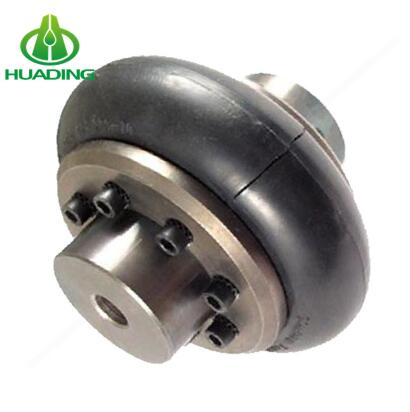Sep. 15, 2023
Mechanical Parts
Tyre couplings, also known as tire couplings, are flexible couplings used in various industrial applications to connect two shafts and transmit torque while accommodating some degree of misalignment and shock absorption. They are characterized by a tire or elastomeric element that acts as the flexible component within the coupling. Tyre couplings find application in several industries and machinery, including:
Rotary Machinery: Tyre couplings are commonly used in rotary machinery such as pumps, compressors, fans, and blowers. These couplings help transmit power from a motor to a driven component while absorbing vibrations and accommodating misalignment between the shafts. In industrial settings, pumps and compressors are frequent users of tyre couplings.
Conveyor Systems: Conveyor systems in manufacturing and material handling often employ tyre couplings to connect various components like drive motors, gearboxes, and rollers. These couplings help maintain smooth and efficient operation by accommodating any shaft misalignment and reducing shock loads.
Mining Equipment: Tyre couplings are used in mining machinery, including crushers, screens, and conveyors. The rugged construction of tyre couplings makes them suitable for handling the demanding conditions and heavy loads commonly encountered in the mining industry.
Marine Applications: In marine propulsion systems, tyre couplings are used to connect the engine's output shaft to the propeller shaft. These couplings can absorb vibrations from the engine and adapt to the dynamic conditions encountered in marine environments.

Paper and Pulp Industry: The paper and pulp industry relies on tyre couplings in equipment like paper machines, pulpers, and agitators. These couplings help maintain precise alignment and reduce the impact of shock loads, ensuring the production process runs smoothly.
Steel Mills: In steel manufacturing, tyre couplings are used in rolling mills, cranes, and other heavy machinery. They can handle the high torque and misalignment requirements of these applications.
Power Generation: In power generation plants, especially those using gas turbines and steam turbines, tyre couplings are employed to connect the turbine and generator shafts. These couplings ensure efficient power transmission and help dampen vibrations generated during operation.
Agricultural Machinery: Certain agricultural equipment, such as grain augers, often use tyre couplings to connect the power source, typically a tractor's PTO (power take-off), to the equipment's drive shaft. This allows for flexibility and misalignment compensation while handling the demanding conditions of agricultural operations.
Construction Equipment: Huading Tyre couplings are found in various construction machinery, including concrete mixers, asphalt pavers, and drilling rigs. They contribute to reliable power transmission and help protect the equipment from shock loads and vibrations.
In summary, tyre couplings are versatile and find application in a wide range of industrial sectors and machinery types. Their ability to accommodate misalignment, dampen vibrations, and transmit torque efficiently makes them valuable components in many industrial processes and equipment where flexibility and reliability are crucial.
Previous: How to Achieve Gear Coupling Reliability
Next: Anti Corrosive Primer: Protecting Metal Surfaces From Corrosion
If you are interested in sending in a Guest Blogger Submission,welcome to write for us!
All Comments ( 0 )